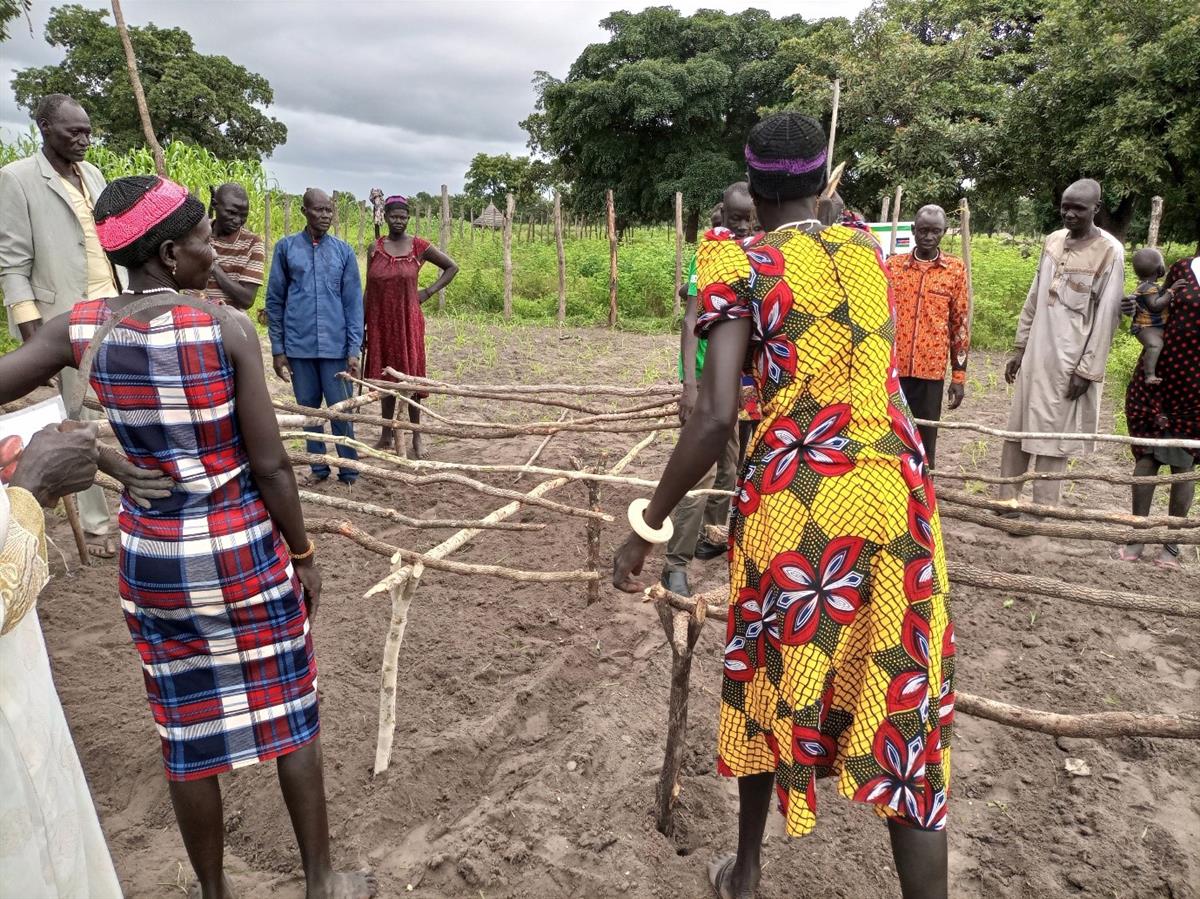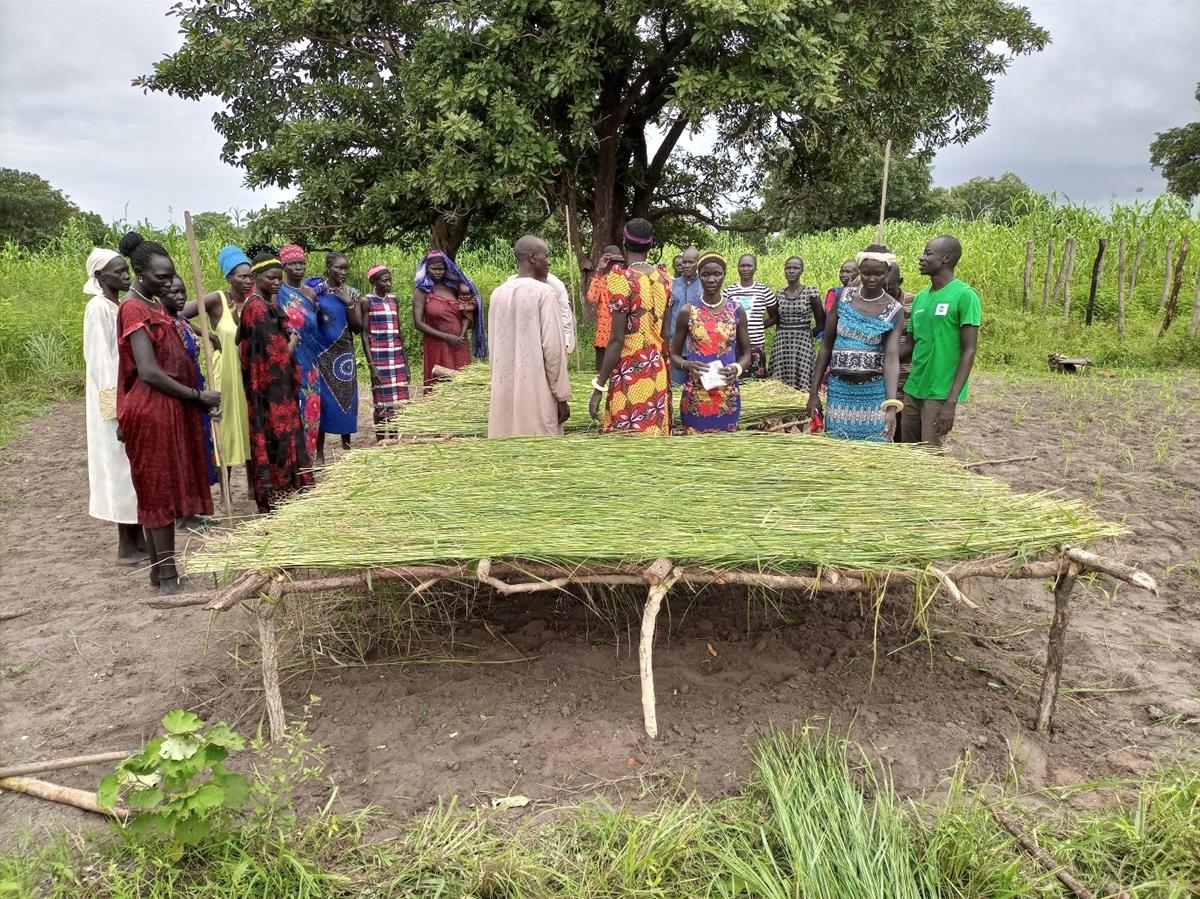In rural areas of South Sudan, women are overcoming many obstacles with the support of the FORESITE project, to ensure their crops become reliable sources of food and income for their families.
South Sudanese women play a critical role in the agriculture and food-processing sector. However, the country’s volatile situation placed a heavy burden on their work, limiting their access to production resources such as land, seeds and water. Cattle being raid or killed for revenge has negatively affected their livelihood further. Many women who used to grow vegetables for a living found themselves in the situation of not being able to secure a reliable food source for themselves and for their families.
One of them is Elizabeth Nyagem, 36 years old, who was forced to abandon her village when a communal conflict started, in 2020. She and her family sought refuge in a nearby town in Cueibet County in the Lakes State, but left behind all their belongings, their animals and land.

Rebuilding everything from nothing seemed almost impossible, but AVSI South Sudan got her into the FORESITE project: funded by the European Union and run with World Vision and the Norwegian Refugee Council, it aims to increase food production in local households to ensure a stable and nutritious diet all year round.
It does so by bringing women together and forming so-called Mother Garden Groups. After joining, Elizabeth began to be able to grow enough vegetables to feed her family and still have a small surplus to sell for a profit.
Her responsibilities are still sometimes overwhelming, but the hurdles she overcame and the support she received helped her become resilient.
Being part of a group helped her a lot, she points out, as the women can all work together and support each other with advice and new ideas.
As a mother, she dreamed of being able to provide an education for her seven children and hoped her farming skills would eventually help her to cultivate her dream. Her situation has been improving after she started growing fast maturing local plants - such as okra, amaranth, onion, eggplants. Since she joined the group, almost a year ago, she has managed to save up to 4000 euros by selling her produce and is now able to send four of her children to school.
Mother Garden Groups
They are groups of local mothers, who are brought together by the FORESITE project so that they can practice and learn together in order to increase their vegetable production. They can receive technical training and improve their skills, that they can then put into practice in order to become self-reliant. Through the project, they are also provided with tools and assorted vegetable seeds.
In 2020, AVSI South Sudan started 28 Mother Garden Groups in Cueibet County, supporting 700 women.
